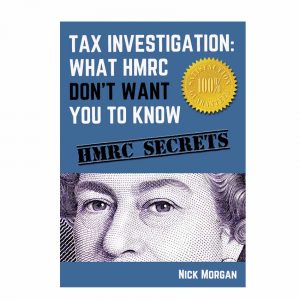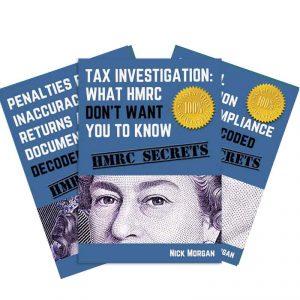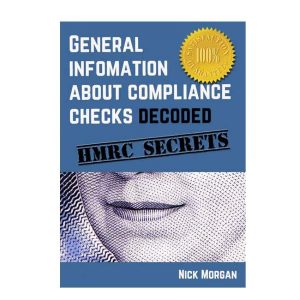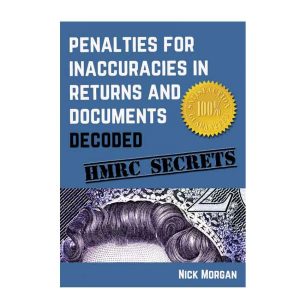The Latest Adjudicator’s Report Throws Up Questions
For those who don’t know the Adjudicator is one of the final people you can complain to if you are unhappy with the way you’ve been treated by HMRC. She (Helen Megarry) describes herself at someone who, “…acts as a fair and unbiased referee looking into complaints about HM Revenue & Customs (HMRC), and the Valuation Office Agency (VOA), across the United Kingdom.”
I should say – at this point – that I’ve interviewed many people about the Adjudicator, both inside and outside HMRC and nobody has a bad word to say about the office. If you are locked in a conflict with HMRC and you’ve burnt through all the other complaint procedures it’s worth knocking on the Adjudicator’s door.
But, for me there are some glaring problems which are highlighted in the latest annual report.
- Small Number Of Cases: In 2017-18, the office accepted 967 new cases for investigation. Let’s do the maths here: the Adjudicator – for the whole of HMRC – takes on less than three new complaints a day. Now that’s an astoundingly low number, and it’s not just one person dealing with these complaints it’s a whole team – over 60 full-time staff!
- No Legal Teeth: The Adjudicator’s recommendations are often upheld by HMRC, but she has no legal power to enforce those decisions.
- Dramatic Drop In The Number Of Cases: The number of complaints about HMRC upheld by the Adjudicator has dropped substantially every year. In 2013-14 the Adjudicator upheld 90% of complaints, in the last report that figure has fallen to just 39%.
- Funding And Location: While the Adjudicator claims to be ‘Independent’ the office is funded by HMRC and they work in the same building at HMRC.
- No Significant Recompense: Even when HMRC have caused significant suffering through incompetence they are not significantly penalised for their blunders. So – it could be argued – they have no motivation to stop.
- The Last Resort: The Adjudicator will not look at cases until you have completed tier one and tier two of HMRC’s own complaints procedure and have received a final response from them – that can take years.
Facts and figures for 2017-18
At 1 April 2017 the Adjudicator’s Office had 630 cases on hand. It took on 967 new cases for investigation in 2017-18 and resolved 1,204. This left 393 cases on hand at 31 March 2018.
The bulk of the adjudicator’s caseload relates to HMRC. Only 23 of the cases resolved in the year related to the Valuation Office Agency, and none were upheld.
HMRC complied with all the adjudicator’s recommendations during the period.
Of the 1,181 HMRC cases resolved during 2017-18, 184 were withdrawn or reconsidered. Of the remaining 997, 39% (389) were upheld substantially or partly and 61% (608) were not upheld.
The percentage of cases upheld by the adjudicator of complaints against HMRC has fallen for the fourth year running. In 2013-14, 90% were upheld substantially or partly. This fell to 85% in 2014-15, 73% in 2015-16 and 41% in 2016-17.
In comparing previous years, it should be noted that the Adjudicator’s Office has changed its methodology for calculating the percentage of cases upheld. This used to be based on the total number of cases cleared in the year, but it now excludes those that were withdrawn or reconsidered.
Does the fall in the proportion of cases upheld reflect an improvement in HMRC’s complaint handling, or might it be due to a change in approach on the part of the adjudicator? There is no evidence of the latter. Successive reports note improvements in HMRC’s performance but there remains much to be done. The reason is likely to lie partly in the nature of the complaints earlier in the period when 90% were being upheld. There was a surge in PAYE cases arriving at the Adjudicator’s Office after HMRC’s reconciliations of PAYE open years which led to underpayments for many taxpayers and disagreements about whether extra-statutory concession (ESC) A19 should be applied.
To put things in perspective, only a fraction of complaints about HMRC are taken as far as the Adjudicator’s Office. According to its 2017-18 annual report and accounts, HMRC received 77,410 new complaints in the year and resolved around 99% of them internally.
The total the departments paid in redress on the adjudicator’s recommendation, was £576,562. This figure includes liabilities given up (including tax credit overpayments written off), costs reimbursed, and consolatory payments for worry and distress.
Time taken to resolve complaints
The average time taken to resolve a complaint in 2017-18 was seven and a half months, and all investigations were completed within the office’s performance objective of ten months.
This represents an improvement on previous years. In 2016-17 and 2015-16, the average time taken was 9.7 and 10.4 months respectively. It also represents an improvement on the parlous state that existed in 2009, when the office was overwhelmed with complaints and it was taking 11 months on average for a case to be allocated and the average investigation time was 40 weeks.
However, seven and a half months still seems a long time for a complainant to wait for a decision, especially as they will already have gone through two tiers of HMRC complaint handling. Most complaints that the Adjudicator’s Office received about its own service during 2017-18 concerned the length of time taken to begin investigations.
The office has started to review its processes and has set objectives to reduce turnaround time further: it aims to resolve complaints within six months on average and have no cases more than nine months old by 31 March 2019.
In South Africa and Australia, tax adjudicators can resolve complaints within weeks, but we are unlikely to achieve that in the UK. The report comments that the adjudicator’s investigations are detailed ones, which are not a quick fix and can take time to conclude. It states: ‘We will continue our approach of allowing the appropriate length of time to investigate each individual complaint, rather than be driven by targets.’
Certainly there is no advantage in a quick turnaround if this does not allow time to obtain full information from the complainant and HMRC and to consider it carefully. It is to be hoped that the new service level agreement – which sets deadlines for HMRC to provide information when requested by the adjudicator – and its own process reviews will enable the office to continue whittling down the turnaround times in future.
Reasons for complaints
In terms of topics, for some years tax credits (working tax credit and child tax credit) have dominated the cases going to the adjudicator. These still accounted for 57% of complaints about HMRC in 2017-18. The report does not break down by topic the rest of the complaints, though the case studies indicate that PAYE errors and ESC A19 continue to feature.
There are also recurring themes in the type of HMRC behaviour that has led to the complaint or exacerbated it. For example, often HMRC did not take decisive action or give a clear explanation at an early stage, which could have resolved the complaint there and then.
The case studies always make interesting reading, and indicate the nature of the complaints the adjudicator has been receiving.
One case in which HMRC had not followed its own guidance caught my attention. The problem concerned whether only or main residence relief was available on a capital gain Mrs F had made. A tribunal had ruled in HMRC’s favour and the adjudicator could not consider that. However, she could look at HMRC’s subsequent debt recovery action, which Mrs F said amounted to harassment.
The adjudicator upheld this complaint in part. She found that HMRC had mostly acted reasonably but had not followed the practice set out in its guidance of sending a warning letter to tell Mrs F about the debt and the consequences if it was not paid. When asked why it had failed to adhere to its own guidance, HMRC said astonishingly: ‘Guidance is just that – [we] do not have to follow it and it is not an error or mistake not to.’ HMRC said it had made a judgment call not to follow the guidance – but there was no record of why that call was made.
Without wishing to read too much into an individual case, it seems ironic that HMRC, though keen that taxpayers should abide by its guidance, did not feel the need to do so itself.
The adjudicator’s recommendations from this case are that decisions must be documented, especially if HMRC is going to depart from its guidance. Further, the guidance should be much clearer as to when officers have discretion to depart from it.
Tax credits
Three cases indicate what may go wrong at the tax credit office. One concerned Mr A’s claim for universal credit. His complaint should have been made to the Department for Work and Pensions (DWP) but, despite this, HMRC continued to handle it and even recommended that Mr A go to the adjudicator.
The adjudicator identified that it was outside the remit both of her office and HMRC. The department should have spotted this much sooner and explained to Mr A the correct route to take. Pointing Mr A to the adjudicator had confused the situation unnecessarily.
This case suggests that, although tax credits are likely to continue to be a significant part of the adjudicator’s workload, increasingly the emphasis will be on issues arising from the migration of tax credit claimants to universal credit, at which point awards are finalised and overpayments have to be dealt with. The adjudicator is already working with HMRC and the DWP to plan for this.
In Mrs D’s case, she simply wanted to know how her tax credits had been calculated, but HMRC was unable to explain in plain English the income disregard and how this applied to her award. Her complaint was upheld in full. In this and the case of Mr C, HMRC had failed to focus on the claimant or try to see things from their point of view.
Mr C’s problem was that somehow the HMRC system had paid him his full year’s tax credit entitlement in the first six months of the year, leaving him with no payments for the remainder, which caused financial hardship and reliance on foodbanks. Mr C phoned HMRC often but no one was able to explain clearly what had happened. The adjudicator upheld this complaint in full. Because Mr C had received his full tax credit entitlement, HMRC failed to appreciate why the timing of payments would be a problem for him, and even ‘inappropriately implied Mr C was in some way responsible’.
Bigger picture
For every HMRC customer who complains, there are many more who have been treated similarly but who remain silent. It is to help these people, by avoiding common errors in the first place, that the adjudicator gives HMRC feedback about individual complaints and makes recommendations for changes.
The adjudicator says she ‘continues to be encouraged by the sustained level of HMRC senior management commitment to transforming complaint handling’ and notes a continued focus on improving the process in HMRC. However, more consistency and a change in corporate culture are needed to improve customer service. Both these issues have featured often in previous reports.
On consistency, the adjudicator says: ‘Anyone accessing any part of the complaint process should be able to expect a similar level of service.’ But it seems that complaint handling is not consistent across HMRC.
HMRC’s corporate culture can lead to poor customer service through, for example, failure to understand the individual’s point of view or to communicate in a way they can understand, or indeed a tendency to think the complainant is always wrong. Mr C’s case is a perfect example of that.
Changing an organisation’s culture is never easy. To assist in showing what needs to change, the adjudicator has started asking complainants for feedback on their interaction with HMRC and what they were unhappy about.
Another issue is how HMRC uses its discretion to depart from the strict letter of the law – for example, by applying extra-statutory concessions. Complainants are unlikely to know of such concessions unless they have an adviser, and the adjudicator wants HMRC to be proactive in applying discretion early on so that complaints do not have to be escalated.
The stated focus of the Adjudicator’s Office for the next two years will be ‘to develop a greater role in supporting the department to improve complaint handling and broader customer service’. This is matched by HMRC’s statement in the adjudicator’s report that it aims to become an organisation that listens to its customers and learns from the feedback.
The Adjudicator’s Office business plan for 2018-19 is expected to be published soon and will give more details of its aims and objectives.
A factor that could influence Helen Megarry’s work is the pressure on HMRC’s resources due to all its other projects and commitments, including Brexit and Making Tax Digital. Complaints handling and customer service are part of HMRC’s ‘business as usual’ and it is to be hoped that funds will remain available to support this very important work.









